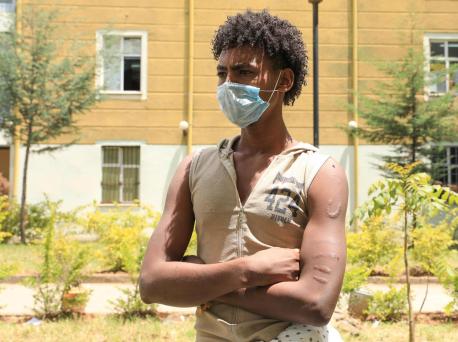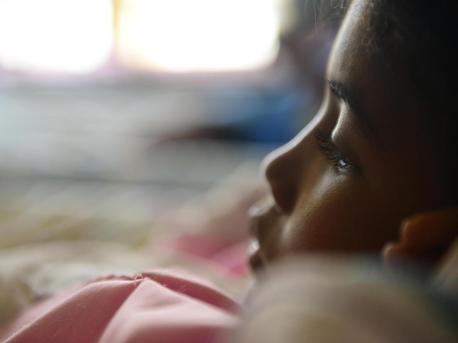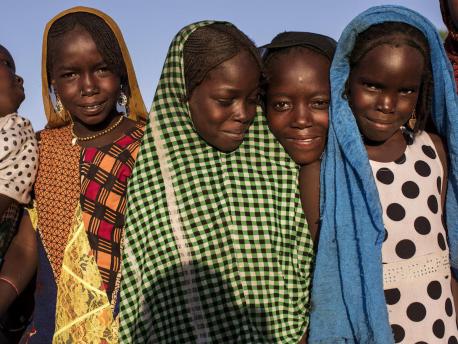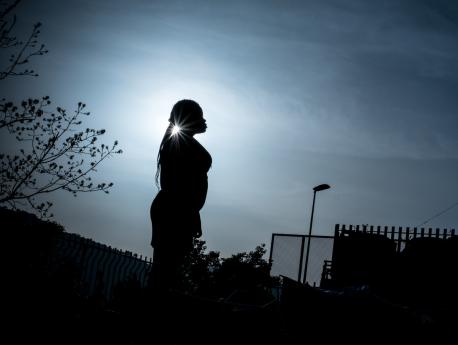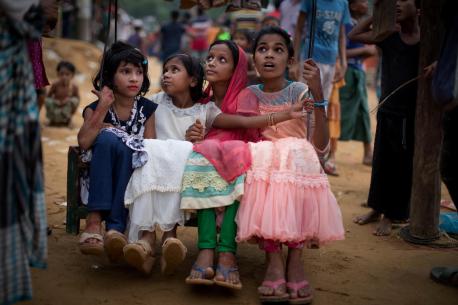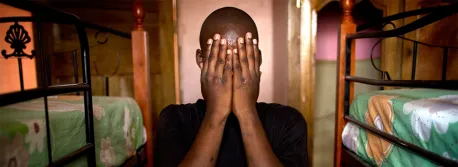
Child
Trafficking
UNICEF addresses the root causes of child trafficking and other forms of exploitation to protect the most vulnerable. Learn more.
What is child trafficking?
Child victims of trafficking are recruited, transported, transferred, harbored or received for the purpose of exploitation. They may be forced to work in sweatshops, on construction sites or in houses as domestic servants; on the streets as child beggars, in wars as child soldiers, on farms, in traveling sales crews or in restaurants and hotels. Some are forced to work in brothels and strip clubs or for escort and massage services.
Child trafficking in the U.S.
Trafficking is not just an issue that happens to people in other countries. The United States is a source and transit country, and is also considered one of the top destination points for victims of child trafficking and exploitation.
Cases of human trafficking have been reported in all 50 U.S. States; anyone can be trafficked regardless of race, class, education, gender, age or citizenship when forcefully coerced or enticed by false promises. Read one mother's story.
UNICEF's work in child protection
To protect children from exploitation, risk factors such as poverty and discrimination need to be addressed. UNICEF's efforts in countries around the world include:
Helping to provide a living wage for parents so that their children do not have to work to support the family and can attend school instead
Lobbying governments and other partners to develop laws and strengthen child protection systems to prevent and respond to violence and abuse
Advocating for the legal birth registration of all newborns
Working with communities and faith-based organizations to change harmful societal norms that make children more vulnerable to exploitation
Supporting the training of professionals working with children including social workers, health workers and police and border officials to help stop trafficking
Help UNICEF protect children from trafficking and other forms of exploitation.
